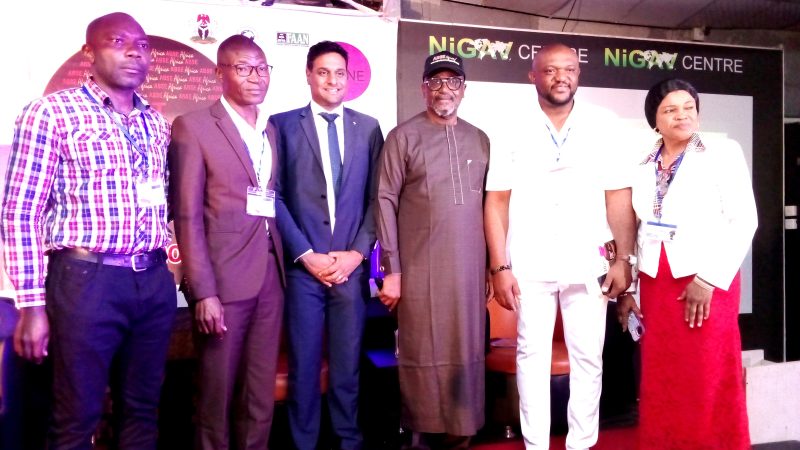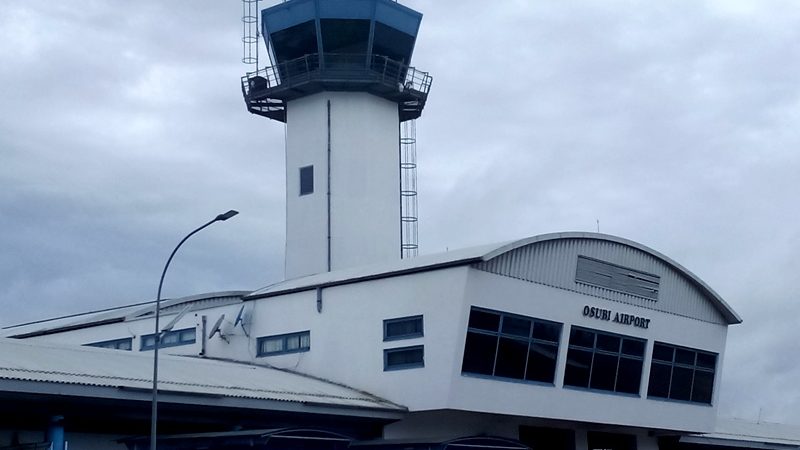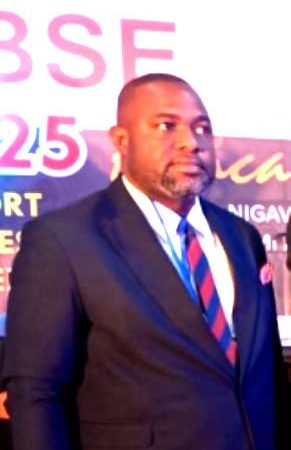Drop Analogue Approach To AVSEC, Passenger Facilitation, Experts Tell Stakeholders

Various players in Nigeria’s aviation security have highlighted the importance of upgrading facilities and updating approaches to aviation security operations and passenger facilitation at airports across Nigeria.
Speaking at the Quarter2 Business Breakfast Meeting (BBM) organized by Aviation Safety Round Table Initiative (ASRTI) at Golfview Hotel, Ikeja, Lagos, the Chief Executive Officer of Selective Security International, Mr. Ayo Obilana stressed the need for security operatives at the airports to drop analogue operations or doing things the old way or outdated way, which he described as “Bank pass-book mentality”.
Theme of the BBM was “Perspectives In Multi-Layer Aviation Security System And Passenger Facilitation.” Obilana further said there was need to review the “obsolete profiling methods of passengers” to minimize delays and enhance passenger facilitations processes. He equally frowned at government interference by deploying politicians instead of professionals to handle critical areas in the system.
Speaking on behalf of the Commissioner of Police, Lagos Airport Command, the Assistant Commissioner in charge of Operations, Mr. Oliver Ezirim said it was no longer fashionable for police officers to be doing manual security stop and search on the roads but that the absence of modern ICT based security facilities had left Nigerian police personnel with no option than to adopt that approach. He noted that because most equipments are obsolete, “there is a need for overhaul.”
He appealed to Nigerians to bear with the police and accommodate the available methods being adopted, calling for more synergy, collaboration and cooperation among security agencies as well as improved funding of the police by the government.
On the unnecessary multiplicity of check-in counters at the nations’ airports, the Managing Director/Chief Executive of Federal Airports Authority of Nigeria (FAAN), Capt. Hamisu Yadudu said most airports across Nigeria do not have such multiplicities, except at Murtala Muhammed Airport, Lagos where he said such situation has been informed by a number of factors including “old habits that die hard.”
In his presentation, the former Director-General of the Nigerian Civil Aviation Authority (NCAA), Dr. Harold Demuren noted that “up to the 1980s, there was no major aviation security challenges in Africa. Then came the 1993 Nigerian Airways Hijack (Lagos-Abuja Flight, diverted to Niamey, Niger Republic). After this was the 9/11 attack in the US, which changed the face of aviation security in the world. Layers upon layers of security were introduced in the US.
Grp. Capt. John Ojikutu (rtd) in his paper ‘Civil Aviation Security Defence Layers and Airport Passengers’ Facilitation,’ noted that there were some lapses in the profiling of the Abdulmutallab by the various bodies from the Department of State Security (DSS) immigration, Aviation Security (AVSEC) and even the airlines in the Umar Farouk Abdul-Mutallab 2010 failed bomb attempt on KLM/NorthWest Airline incident. He however, decried the multiple security desks in the sector, stressing that it was discouraging travellers and investors into the country.
Earlier, Dr. Gabriel Olowo, the President, ART, said that in view of the current security deterioration and challenges in Nigeria on farmlands, religious places, road and rail transportation, it was pertinent for ASRTI to continue to discuss the security situation in the industry. He noted that the various communiqués arising from the past breakfast meetings of ASRTI were not implemented by the government, but insisted that this would not daunt the body from continuing to propagate safety and security in the sector.







